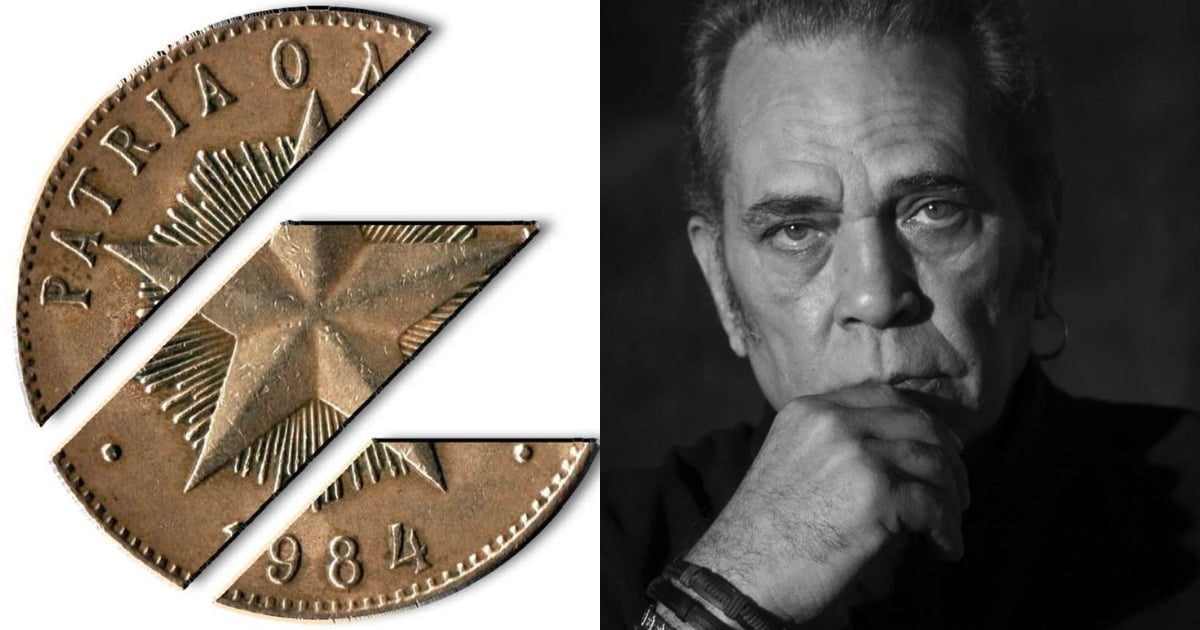Cuban actor Luis Alberto García has taken to the internet to voice his opposition to the recent actions of the state-run telecommunications company, ETECSA. He is demanding equal rights for all Cubans amid widespread discontent over the so-called "digital price hike." In a Facebook post, García expressed his dissatisfaction with ETECSA's partial solutions, which currently benefit only certain groups, particularly university students.
García stated, "It can't be with patches. It can't be by dividing us into compartments. No one is more in need than others." He continued, "There is another sector, VITAL to the Nation's health, JUST AS IMPORTANT as the students, which SHOULD ALSO HAVE THE RIGHT to be included in the new measures announced last night. Even improved: THE PEOPLE OF CUBA!!!”
A Critique of Limited Solutions
The actor's comments refer to an announcement made by ETECSA during a broadcast on the Mesa Redonda program. ETECSA's president, Tania Velázquez Rodríguez, revealed that university students will be able to access an additional 6 GB package for 360 CUP, totaling 12 GB per month for 720 CUP. Additionally, access to over 40 educational sites has been made free.
However, these measures do not address the core issue: the restriction imposed since May 30, which limits national recharges to a maximum of 360 CUP per month. This leaves larger data packages available only in U.S. dollars, through international cards or the MiTransfer Wallet.
The "solution" has faced broad criticism from the public, not only for its exclusivity but also for its clear bias toward a specific group, while the majority of the Cuban people continue to face forced disconnection amid a severe economic crisis.
Student Protests and Growing Discontent
The dissatisfaction is mounting. Student groups have organized a nationwide university strike starting this Wednesday, protesting ETECSA's tariffs and demanding equal internet access as a fundamental right. Organizations like the Federation of University Students (FEU) and the Higher Institute of International Relations (ISRI) have publicly voiced their disagreement, highlighting that the new tariffs pose a direct barrier to the academic and professional development of young people.
Even official sectors, such as the Hermanos Saíz Association (AHS), have joined the criticism, acknowledging that the rising cost of connectivity hampers the promotion of art, the circulation of ideas, and the creativity of young creators.
"No One Is More in Need Than Others"
Luis Alberto García, known for his extensive career and critical stance on the government, joins a growing list of public figures and institutions advocating for equal access, social justice, and digital rights for all Cubans, without exclusions or favoritism.
His call not only seeks a revision of tariff policies but also a broader vision of access to connectivity as part of citizen well-being. In a country where the internet is a limited and expensive resource, the demand for digital equity has become a cross-cutting issue that unites students, artists, professionals, and ordinary citizens.
ETECSA's price hike, far from being resolved with isolated measures, has sparked a deep debate about who has the right to connect and who remains excluded in today's Cuba. Voices like that of Luis Alberto García emphasize that the issue transcends gigabytes: it's about dignity, access, and justice for all.
FAQs on ETECSA's Price Hike and Public Response
What are the main criticisms of ETECSA's recent measures?
Critics argue that ETECSA's measures are partial and benefit only certain groups, such as university students, while leaving the majority of Cubans disconnected during an economic crisis. The restrictions on national recharges and the bias towards those who can pay in U.S. dollars are particularly controversial.
How are students responding to ETECSA's tariff changes?
Student groups have called for a nationwide university strike to protest the tariffs and demand equal internet access as a basic right. They argue that the current tariffs hinder their academic and professional growth.
Why is internet access a significant issue in Cuba?
In Cuba, the internet is a limited and costly resource. Access to digital connectivity is crucial for education, the exchange of ideas, and the promotion of art and creativity. The debate over digital equity reflects broader issues of social justice and citizen rights.
